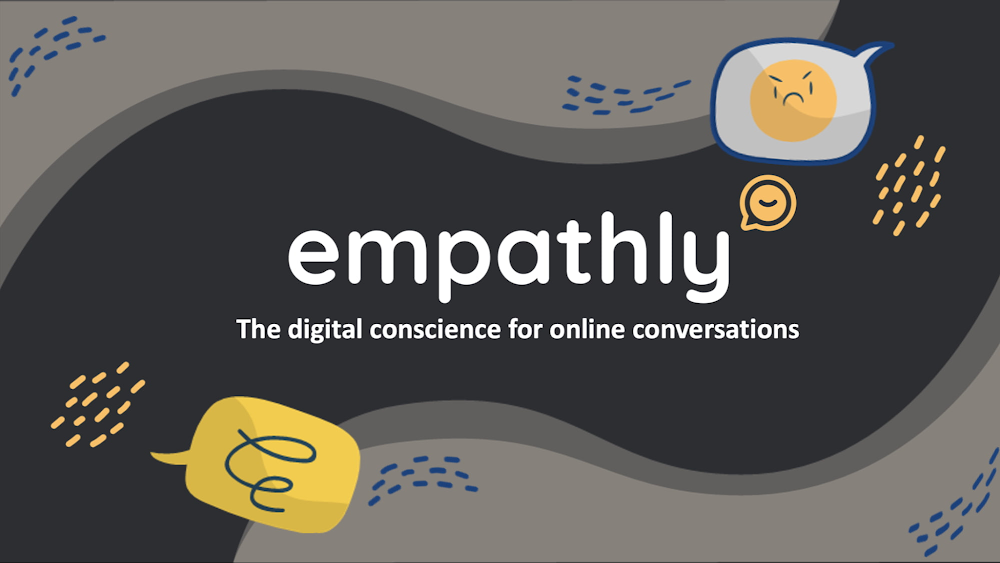Google Cloud hackathonOn 10th April 2022, Google Cloud launched the first Singapore Google Cloud Hackathon, where startup teams were tasked to build solutions for either the topics of Sustainability, Artificial Intelligence, Automation or the New Normal, to create innovative solutions and have the opportunity to win prizes. From April to 10th June, Google Cloud worked with hackathon entrants through the solutioning process from ideation to prototyping to the final pitch. The hackathon saw incredible response with 40 startup teams competing for a top 5 spot. The top 5 teams were invited to pitch live at the Google Asia Pacific Singapore Campus and presented to a panel of judges that consisted of experts in the startup ecosystem and technology leaders across APAC in Google. The top 3 teams also continued to receive mentorship opportunities with Google Cloud and startup experts. Top 3 teamsRead on to learn more about the top 3 startup teams:Team Empathly – 2nd Runner UpCofounders Timothy Liau, Jamie Yau and Rachel Tan personally experienced hate speech and witnessed discrimination in online communities. The available content filters and manual moderation solutions, which they found to be very expensive, only focused on damage control after the hateful comment has been sent. Out of a desire to prevent the toxic behavior at its source, Empathly was born.Any platform with user-generated content — social media, games, marketplaces, dating apps and more — is susceptible to hate speech. Described as “The Grammarly for content moderation”, Empathly applies its AI that identifies distinct types of hate speech with context – to promote safer and more inclusive speech in workplaces and online platforms. Empathy is built on Cloud Run and Cloud Firestore.Empathly’s behavioral science advisory team includes Yale-NUS professor and expert in behavioral insights Dr. Jean Liu whose research focuses on how technological solutions require an appreciation of human behavior and the social context. They will focus their next few months on working closely with their early customers and building toward product-market-fit.Team Ambient Systems – 1st Runner UpIvan Damnjanović founded Ambient to help companies meet their decarbonization targets through data science innovation. The team consists of Ivan and Frey Liu, a fellow computer science masters student from National University of Singapore (NUS). Through Ambient’s platform, companies can access real time Big Data analytics for actionable decarbonisation through energy efficiency and trade-off optimization.In 2020, Ambient Systems was founded when Ivan proposed a software-based solution for managing complex indoor air quality challenges, such as airborne transmission of COVID and vertical farming climate conditions. Ivan’s patent in the AgriTech field helped Ambient secure a $100k investment from NUS to further pursue commercialization of the technology and help Singapore achieve its 30 by 30 agenda – to build Singapore’s “agri-food industry’s capability and capacity to produce 30% of our nutritional needs locally and sustainably by 2030”.Through the use of Google’s Firebase platform, the team was able to quickly build a fully functional prototype that garnered interest from investors and customers.Team Pomona – ChampionsAs harsh weather conditions continue to plummet agricultural yield, there is an increasing need for countries to improve food security through efficient agriculture and sustainable living. However, high operational costs and cyclical risks inhibit the growth of vertical farming in the agricultural industry.Team Pomona consists of Pang Jun Rong, Yuen Kah May, Teo Keng Swee, Nicole Lim Jia Yi, Tan Jie En, who are student entrepreneurs from Singapore Management University (SMU) Computer Science. They took motivation from their school’s efforts in sustainability and technology to form Pomona — a solution set on making food security more personal through the ownership of vegetables in commercial agricultural lifecycles.Pomona features a gamified de-fi agricultural platform to promote collective ownership of vertical farming agriculture, which enables profit-sharing between producers and consumers to hedge against operational risks. This was done through a hybrid decentralized microservice cloud architecture with Google Cloud, using blockchain technologies for “dVeg” digital tokens and conventional full-stack components for gamification with IoT integration, providing real-time interactive growth tracking for lifecycle traceability.Final wordsCongratulations to all of the teams and especially Empathy, Ambient Systems, and Pomona. We look forward to more events with startups in the future!
Quelle: Google Cloud Platform

Published by